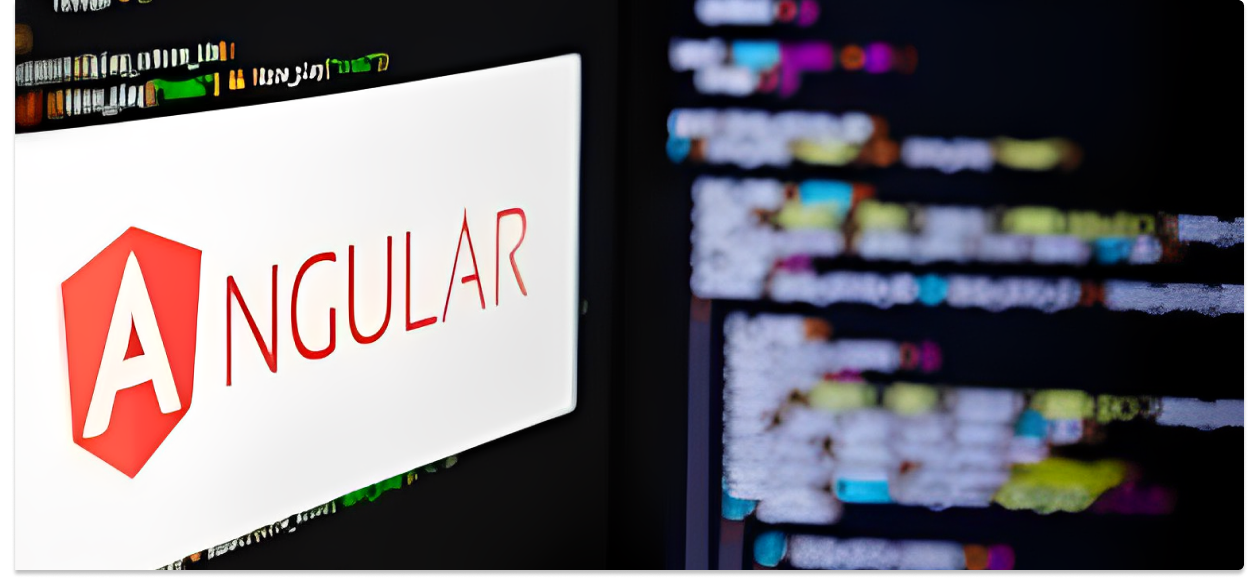Angular Development

Angular Development
Overview Course Description
Welcome to our Angular Development course! Dive into the world of web development with our comprehensive Angular training. This course equips you with the skills to build dynamic, responsive web applications. Explore the fundamentals of Angular, from components and modules to services and routing.
Learn best practices and unleash the power of this popular framework. Elevate your coding expertise and stay ahead in the rapidly evolving field of web development with our Angular Development course.
What You’ll Learn From This Course




Course Curriculum
1. Overview of Web Development
2. Introduction to Single Page Applications (SPAs)
3. Role of Frontend Frameworks
4. Introduction to Angular and its Evolution
5. Setting Up the Development Environment (Node.js, npm)
6. Angular CLI Basics
7. Understanding TypeScript for Angular
8. Angular Project Structure
9. Angular Modules and Components
10. Angular Directives and Data Binding
1. Creating Angular Components
2. Component Lifecycle Hooks
3. Template Syntax and Data Binding
4. Structural Directives (ngIf, ngFor, ngSwitch)
5. Attribute Directives
6. Template Reference Variables
7. Angular Forms and Two-Way Data Binding
8. Angular Pipes for Data Transformation
9. Angular View Encapsulation
10. Styling Angular Components
1. Introduction to Angular Services
2. Creating and Consuming Angular Services
3. Dependency Injection in Angular
4. Angular HTTP Client for API Communication
5. Error Handling and Observable Patterns
6. Angular Interceptors
7. Sharing Data Between Components with Services
8. Angular Routing Basics
9. Lazy Loading and Route Guards
10. Handling Query Parameters and Route Navigation
1. Template-Driven Forms vs Reactive Forms
2. Building Reactive Forms in Angular
3. Form Validation and Error Handling
4. Dynamic Forms in Angular
5. FormBuilder and FormGroup
6. Handling Complex Form Scenarios
7. Custom Validators in Angular
8. FormArray and Nested Forms
9. Async Validation in Angular Forms
10. Testing Angular Forms
1. Consuming RESTful APIs in Angular
2. Angular HTTP Client Best Practices
3. RxJS in Angular – Observables and Subjects
4. Handling HTTP Requests and Responses
5. Mocking API Requests for Testing
6. Caching Strategies in Angular
7. Optimizing API Calls in Angular
8. Error Handling in API Requests
9. Angular HttpClient Interceptors
10. Securing API Calls in Angular Applications
1. Introduction to Angular Routing
2. Configuring Routes in Angular
3. Nested Routes and Router Outlets
4. Route Parameters and Data
5. Route Resolvers for Data Fetching
6. Lazy Loading Modules
7. Angular Router Guards
8. Redirects and Route Navigation
9. Hash Routing vs Path Routing
10. Navigation Extras in Angular
1. Introduction to State Management
2. Angular Services for State Management
3. Introduction to NgRx for Reactive State Management
4. Actions, Reducers, and Selectors in NgRx
5. Effects in NgRx for Side Effects
6. NgRx Entity for Managing Collections
7. Testing NgRx Code
8. Alternative State Management Approaches
9. Best Practices for Angular State Management
10. Debugging Angular Applications with DevTools
1. Introduction to Authentication in Angular
2. Token-Based Authentication
3. JWT (JSON Web Token) Authentication
4. Implementing Login and Logout Functionality
5. Auth Guards in Angular
6. Role-Based Access Control
7. OAuth and Social Media Authentication
8. Implementing Registration and Password Reset
9. Secure Password Storage and Best Practices
10. Security Considerations for Angular Applications
1. Unit Testing in Angular with Jasmine and Karma
2. Writing Testable Code in Angular
3. TestBed and Testing Components
4. Testing Services in Angular
5. End-to-End Testing with Protractor
6. Debugging Angular Applications
7. Chrome DevTools for Angular Developers
8. Performance Testing and Optimization
9. Error Handling and Logging Strategies
10. Continuous Integration and Deployment (CI/CD) for Angular
1. Angular Animations
2. Internationalization (i18n) in Angular
3. Progressive Web Apps (PWAs) with Angular
4. Server-Side Rendering (SSR) in Angular
5. Angular and Microservices Architecture
6. Angular and WebSockets for Real-Time Communication
7. Angular Schematics for Project Automation
8. Angular Universal for Server-Side Rendering
9. Angular CLI Customization and Best Practices
10. Angular and the Jamstack Architecture
Certification

Quick Inquiry
WHY CHOOSE US
Choose StackCode Training Institute for Angular Development and pave the way for a successful career in web development

Learn Angular from industry experts at StackCode, Ahmedabad's leading training institute.

Our course covers the latest Angular frameworks and tools for a well-rounded learning experience.

Gain practical skills through hands-on projects, ensuring real-world application of your knowledge.

Access state-of-the-art facilities and resources to stay up-to-date with the latest Angular technologies.

Receive a certification upon completion, enhancing your credibility in the job market.

Benefit from our strong industry connections in Ahmedabad for career opportunities in Angular development.
Join Our
AMD:
RJT:
OUR AFFILIATES
We are Associated with





